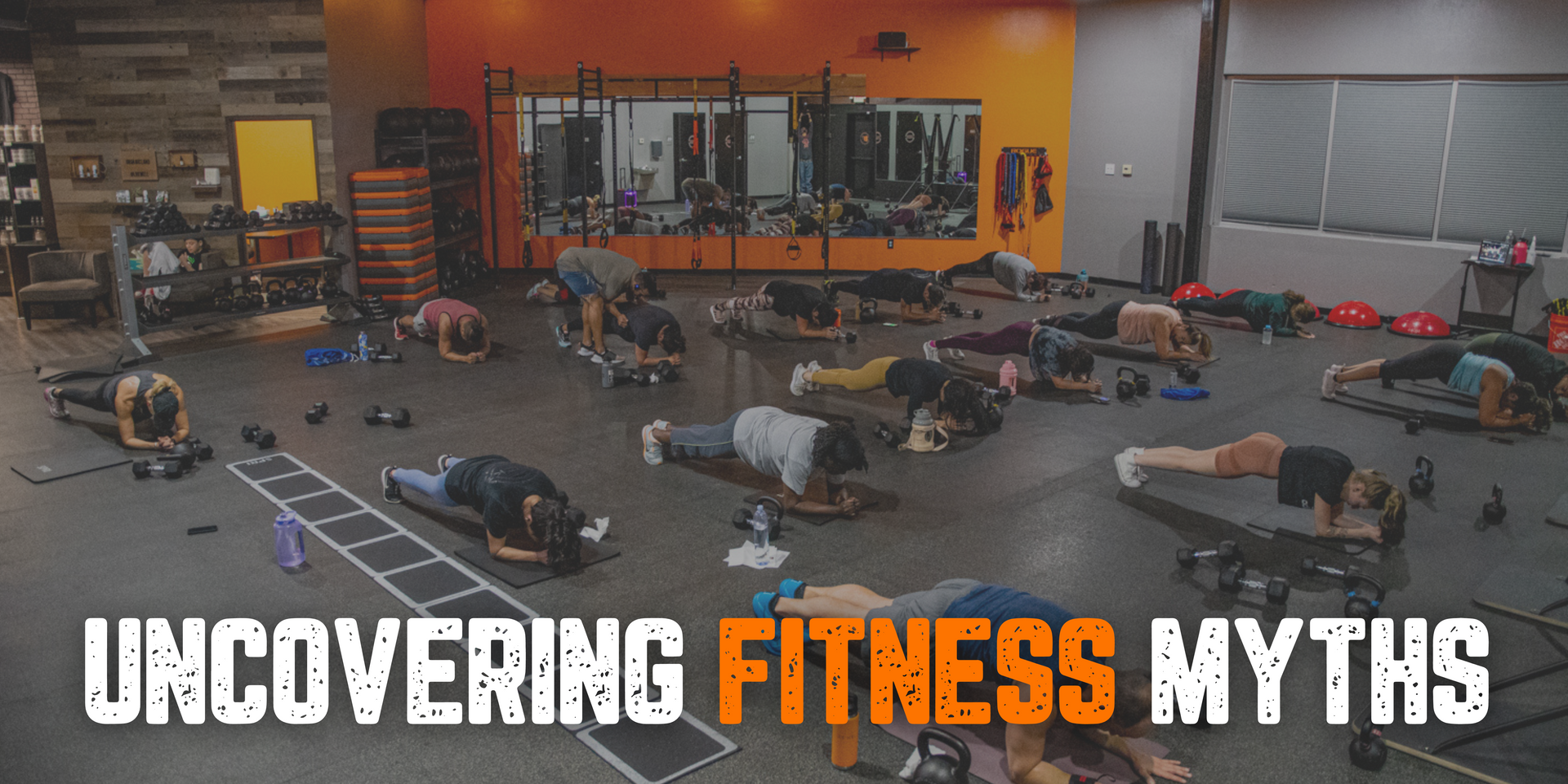Uncovering Fitness Myths
UNCOVERING FITNESS MYTHS

There are a lot of myths in the world of fitness. Some of them are harmless, but others, not so much. That’s why it’s important to debunk them.
Two fundamental reasons why we should debunk fitness myths are:
- Safety
Many fitness myths can be dangerous and lead to injury if followed without proper guidance. For example, the myth that "no pain, no gain" can lead to pushing oneself too hard and causing damage.
- Efficiency
Believing in fitness myths can lead to ineffective exercise routines and poor results. For example, the myth that certain exercises or machines target specific areas.

Here are eight of the top fitness myths debunked.
1. No pain, no gain: While some discomfort is expected during exercise, pushing yourself to the point of pain is unnecessary to see results.
2. Spot reduction: Targeting a specific body part with exercise (e.g., doing sit-ups to lose belly fat) will not reduce fat in just that area.
3. Stretching before exercise prevents injuries: Research has shown that stretching does not prevent injuries and may even decrease power and performance. Myofascial release, such as foam rolling, is better to perform before a workout and save the deep stretching for post-workout.
4. More is better: Doing more exercise is not always better. Overtraining can lead to injury and burnout.
5. Carbs are bad: Nature invented carbs for a reason. Carbohydrates are an essential energy source for the body and should not be avoided in their whole food, natural forms such as fruits, vegetables, and whole grains. What can be avoided is highly processed carbs such as white bread, chips, cookies, etc.
6. Supplements are necessary: While some supplements may be beneficial, they are optional for most people to meet their fitness goals.
7. Machines are better than free weights: Both machines and free weights have advantages and can effectively achieve fitness goals. The choice depends on the individual's preference and fitness level.

8. Women should avoid weightlifting: Women can and should lift weights as part of their fitness routine. It's a great way to build muscle and strength, leading to various health benefits, including strengthening bones.
It is crucial to avoid fitness myths because they can lead to misguided beliefs about achieving your fitness and weight loss goals. In addition, misinformation can lead to ineffective exercises or incorrect nutrition advice, resulting in wasted effort and time.
Instead, stay informed and consult reliable sources when changing your fitness routine.
